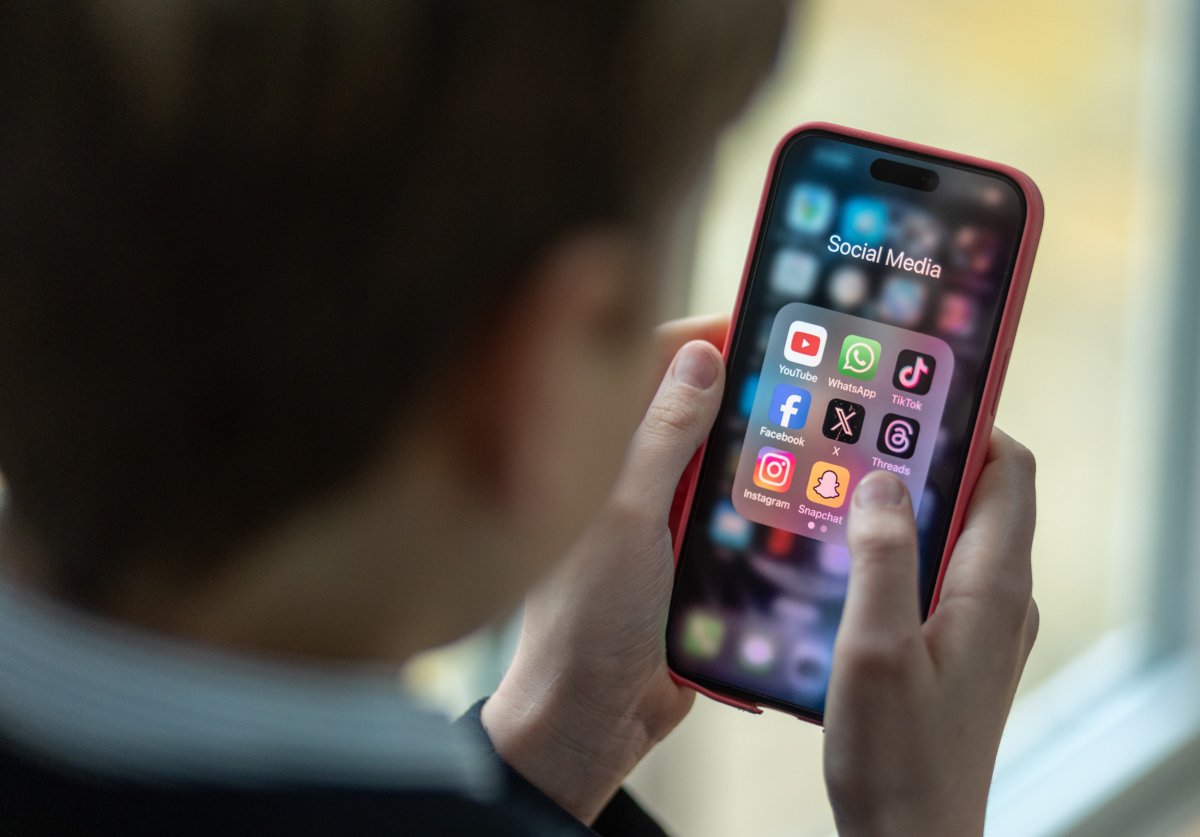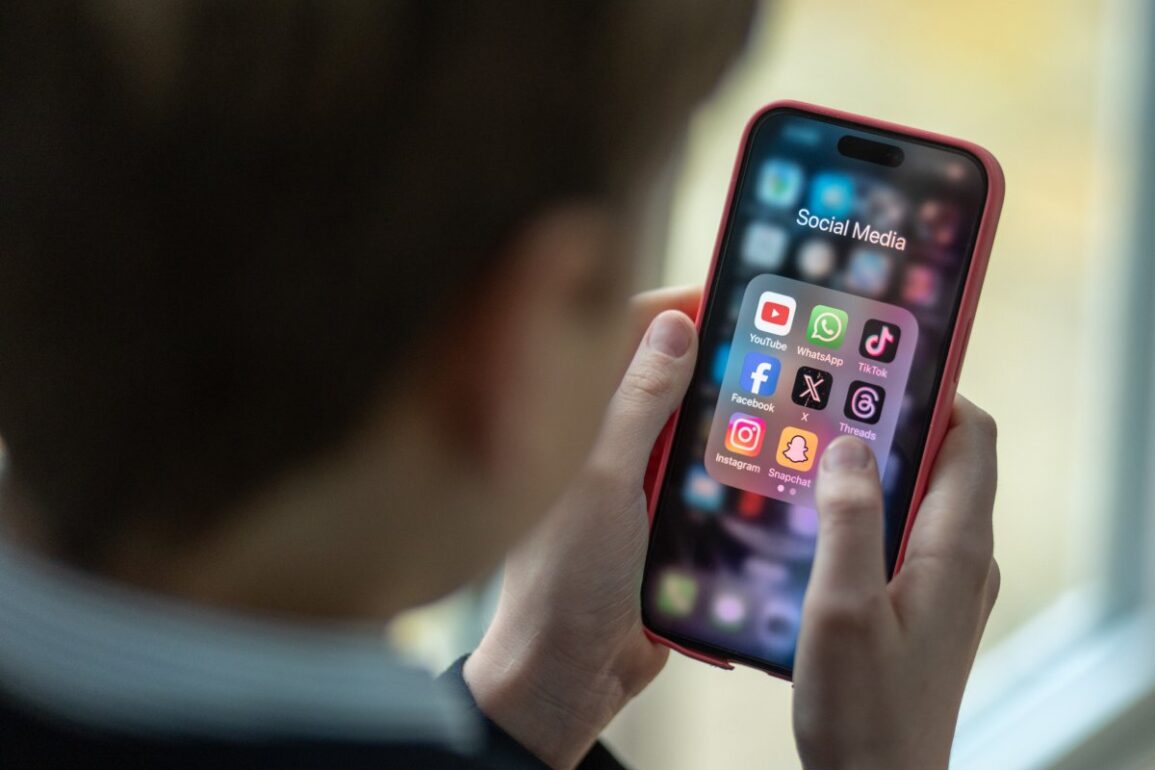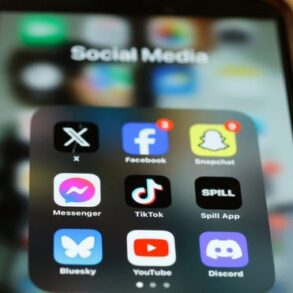What’s New
Children under 14 in Florida are set to have their social media profiles deleted when a new law takes effect on January 1, 2025.
Why It Matters
The new law means Florida will have one of the nation’s most restrictive social media bans for minors, but legal challenges are anticipated.
Proponents of the law say it will protect children from the dangers of social media, including risks to their mental health.
Critics say the law violates the First Amendment and that it should be left to parents, not the government, to monitor their children’s social media use.

A file photo shows a boy looking at social media applications on an iPhone screen. In Florida, children under 14 are set to have their social media accounts terminated when a new law takes effect on January 1, 2025.
Matt Cardy/Getty Images
What To Know
House Bill 3, signed by Florida Governor Ron DeSantis in March, requires social media platforms to terminate the accounts of people under 14 and those aged 14 and 15 who do not have parental permission.
Social media companies that violate the law’s requirements face being sued, and fined up to $50,000 per violation.
The law does not name any specific platform, but says it applies to any that promote “infinite scrolling,” display reaction metrics such as likes and shares, feature auto-play videos and have live-streaming and push notifications.
What People Are Saying
Florida Governor Ron DeSantis said in a statement after signing the bill into law in March: “Social media harms children in a variety of ways. HB 3 gives parents a greater ability to protect their children.
According to The Associated Press, he has also expressed confidence that the law will be upheld. “Any time I see a bill, if I don’t think it’s constitutional, I veto it,” he said. “We not only satisfied me, but we also satisfied, I think, a fair application of the law and Constitution.”
Florida’s Republican House Speaker Paul Renner said in March: “The internet has become a dark alley for our children where predators target them and dangerous social media leads to higher rates of depression, self-harm, and even suicide… Thanks to Governor DeSantis’ signature, Florida leads the way in protecting children online as states across the country fight to address these dangers.”
Democratic Rep. Anna Eskamani said in March: “Though I agree more needs to be done in protecting our youth on social media, this bill goes too far in taking away parents’ rights and banning social media usage—and thus First Amendment Rights—for young Floridians.
“Instead of banning social media access, it would be better to ensure improved parental oversight tools, improved access to data to stop bad actors, alongside major investments in Florida’s mental health systems and programs.”
Kara Gross, legislative director of the ACLU of Florida, said in a statement in March that the law “raises significant constitutional concerns because it intrudes on the free speech rights of adults and minors.”
She said: “The new law also prohibits minors under the age of 14 from having social media accounts even with the consent of their parents. This is a complete disregard for parental rights. The government shouldn’t be controlling what ideas and information parents can allow their children to access.”
What’s Next
The law takes effect on January 1, 2025.







